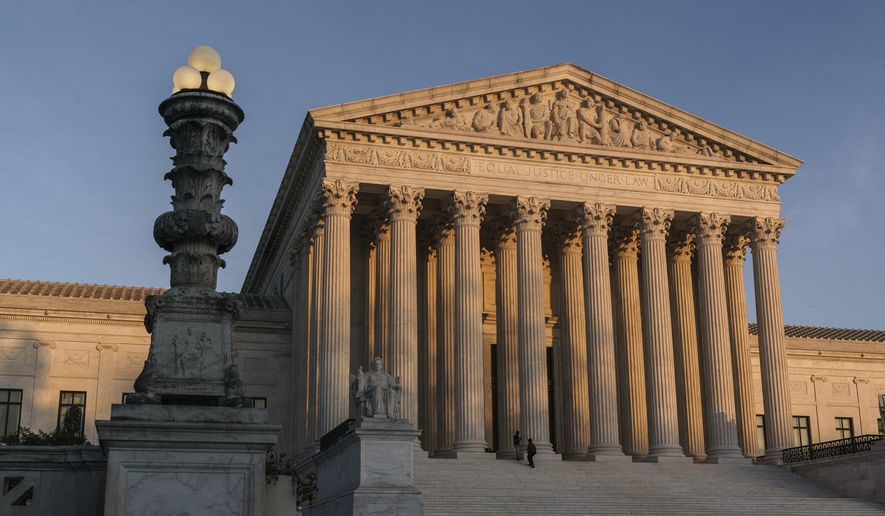The Supreme Court on Monday ruled unanimously for a Rhode Island man after police responding to a domestic disturbance took guns from his home without a warrant — a violation of the man’s Fourth Amendment rights, the justices ruled.
Police citing mental health concerns seized two handguns while in the home, though the man had no criminal or violent history. His wife had reported she was concerned he was suicidal.
“The Fourth Amendment protects ‘[t]he right of the people to be secure in their persons, houses, papers, and effects, against unreasonable searches and seizures,” Justice Clarence Thomas wrote for the court. “The ‘very core’ of this guarantee is ‘the right of a man to retreat into his own home and there be free from unreasonable governmental intrusion.’”
The incident didn’t result in charges against the man, Edward Caniglia, and he agreed to have a psychological evaluation.
Mr. Caniglia later launched a legal battle against the police when he was unable to get his firearms returned, saying his Fourth Amendment rights were infringed.
At issue in the case was the “community caretaker” exception to the Fourth Amendment protections against unreasonable search and seizure. The exception allows law enforcement to search vehicles during times of emergency without first getting a warrant.
The community caretaker standard was first described in the 1973 case of Cady v. Dombrowski in which the Supreme Court ruled that police can legally search a vehicle in its possession following the arrest of an intoxicated driver. The exception has since been applied in cases when a search is not part of a criminal investigation.
But the high court said Monday that cars and homes should be treated differently, because law enforcement responds to accidents on the highway.
“What is reasonable for vehicles is different from what is reasonable for homes,” Justice Thomas wrote.
Mr. Caniglia‘s dispute started in 2015 when he and his wife of 22 years got into an argument that lasted several hours. The 68-year-old man took an unloaded handgun, put it on the table and told her, “Why don’t you just shoot me and get me out of my misery?”
Fearing his instability, Ms. Caniglia spent the night at a motel. She called the police the next day to do a welfare check on her husband when she could not reach him on the phone.
The police interviewed Mr. Caniglia and took him to the hospital for a psychiatric evaluation.
They called superiors, who instructed them to seize Mr. Caniglia‘s guns from the house without first obtaining a warrant.
Mr. Caniglia was not admitted to the hospital and was unable for months to secure the return of his firearms, even after hiring a lawyer.
The lawsuit followed, claiming violations of Mr. Caniglia‘s Fourth Amendment and due process rights along with claims under state law. The police returned the guns after the lawsuit was filed.
The 1st U.S. District Court of Appeals sided with law enforcement, ruling the community caretaker exception could extend into the home.
The Supreme Court decision on Monday reverses that lower court ruling.
• Alex Swoyer can be reached at aswoyer@washingtontimes.com.




Please read our comment policy before commenting.